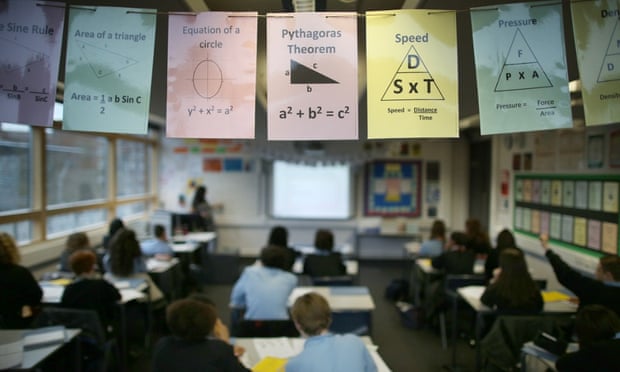Girls lack self confidence in maths and science problems, study finds
Posted on :
05-Mar-2015
OECD study suggests school performance could be boosted by parents encouraging girls to consider careers involving subjects such as engineering

The OECD’s research found that girls do worse than boys in maths, and that boys come out top even among high-performing students.
Girls “lack
self-confidence” in their ability to solve mathematics and science problems and
achieve worse results than they otherwise would, despite outperforming boys
overall, according to an international study of gender equality in schools by
the Organisation for Economic Cooperation and Development.
The study – based
on the OECD’s international tests and surveys – suggests school performance
both worldwide and in the UK could be boosted by improving attitudes among
girls towards tackling maths and science, and by parents encouraging girls to
consider careers involving subjects such as engineering.
The OECD’s research
found that girls do worse than boys in maths, and that boys come out top even
among high-performing students, in countries that took part in the OECD’s
assessments of 15-year-olds.
The OECD said:
“What emerges from these analyses is particularly worrying. Even many
high-achieving girls have low levels of confidence in their ability to solve
science and mathematics problems and express high levels of anxiety towards
mathematics.”
Yet girls were also
found to have more positive attitudes to school in general, did more homework,
more often read for pleasure and were less likely to play video games – so that
far fewer girls than boys were among underachieving school pupils.
Finland – one of
Europe’s best performing countries in OECD tests overall – had more than twice
as many boys as girls among its low achievers. The UK came out relatively well,
with almost no gender gap seen between boys and girls among the worst
performing pupils.
“Gender disparities
in performance do not stem from innate differences in aptitude, but rather from
students’ attitudes towards learning and their behaviour in school, from how
they choose to spend their leisure time, and from the confidence they have,”
the report said.
As proof, the
report noted that girls in Shanghai – the highest performing entrant in the
last round of OECD tests – scored more highly in maths than boys in most other
countries.
The OECD pinned the
blame for the disadvantage for girls in maths and science on low expectations
among parents and teachers, as well as lack of self-confidence and what it
called the ability to “think like a scientist” in answering problems.
“This gender
difference in the ability to think like a scientist may be related to students’
self-confidence. When students are more self-confident, they give themselves
the freedom to fail, to engage in the trial-and-error processes that are
fundamental to acquiring knowledge in mathematics and science,” the OECD said.
Girls were more
likely than boys to report that they “just weren’t good at maths” and less
likely to agree that maths was one of their best subjects.
Girls in the UK
appeared to be particularly vulnerable to low self-confidence hampering their
ability in maths and science.
British boys
outperformed girls in science exercises by 20 percentage points – but the gap
disappeared when the performances were adjusted for levels of self-confidence.
In other words: girls who said they were good at science performed as well as
boys with the same attitude, while girls and boys lacking in self-confidence
achieved results that were similar to each other.
In maths, British
girls were outscored by boys in tests – but the gap was reversed when attitudes
were taken into account. The problem, however, is that many more girls lack
confidence in their mathematical and scientific ability than their male peers.
In the UK, the
position was made worse by the very high correlation between mathematical and
science test performance and self-confidence in those subjects. As a result,
lack of confidence is potentially holding the UK back from performing better in
international league tables such as the OECD’s triennial Pisa tests.
Alun Jones, head of
the Girls’ School Association, said that he agreed with the OECD’s assessment,
but said that girls could be encouraged to “think like a scientist” in the
right environment and through exposure to scientific roles. He said: “We’re
dealing with centuries of gender bias and what people and parents think and
say, often without realising it, does influence children’s expectations of
themselves.
“Girls’ schools
can’t eradicate this kind of cultural conditioning, but we can take significant
steps towards minimising it and the results indicate that this does boost
girls’ confidence in their maths and science abilities,” Jones said.
Pupils at all-girls
schools are more likely to study subjects such as physics and maths to A-level.
The OECD research
tallies with recent examination results in England. While girls do better
overall, boys outperform them in maths and sciences other than biology, and
study those subjects in greater numbers in higher education.
Contact Mistry Maths for accurate 11+ practice papers and 11+ tutors and tuition that help your child beat exam day nerves.